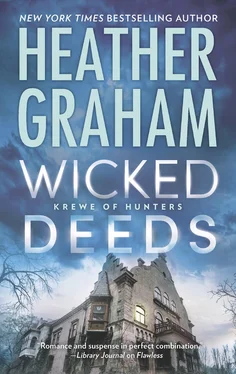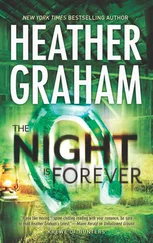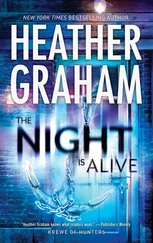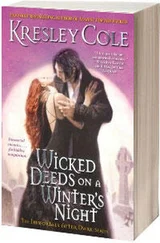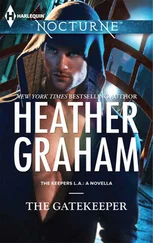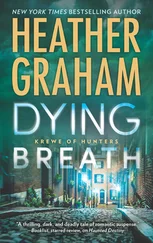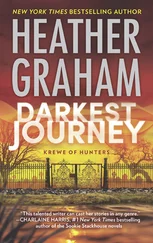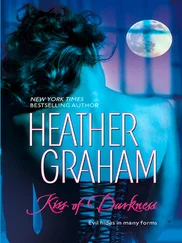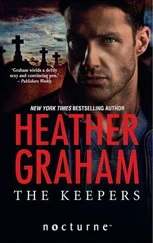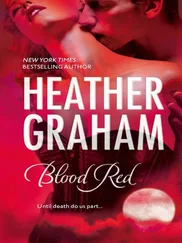“Thanks,” Griffin said. He lifted the bag. He and Vickie both studied it.
Vickie had noted other ravens just like it at the gift shop the night before; they were cheap plastic, cost no more than a cup of coffee—perfect little souvenirs that brought back a memory and made you smile.
“There were three dead blackbirds by the body?” Griffin asked.
Morris lowered his head in acknowledgment. “They’re in the evidence bags at the end of the desk. Take a look—knock yourself out. I guess what’s going to matter is how they died, and that falls in Dr. Hatfield’s territory.”
“Actually, it’s a necropsy—but we have a fellow on staff who deals with all animals that aren’t of the human variety,” Hatfield said. “And we’ll keep you apprised every step of the way.”
“Thanks,” Griffin said. “They are blackbirds, right? Not young crows or ravens?”
“Blackbirds,” Hatfield agreed. “The size alone gives us that.”
Vickie held where she was, watching Griffin’s broad back as he headed down the rows of carefully shelved wine.
After all, he was an agent; she wasn’t sure what procedure would be. It was best in this situation to let Griffin move forward without her.
And...
For a moment, she felt dizzy, remembering her dream.
Poe—Edgar Allan! She had met him at a tavern that wouldn’t have been far from here...the tavern he’d been found near, delirious and wearing clothing that wasn’t his.
He’d been missing three days. Some said he’d been kidnapped for his vote—and thus the different clothing that he wore. Some said that it had been the drink, that he’d met up with friends and the alcohol had quickly cost him his life.
Some said it had been a murder plot, perpetuated by relatives of the widow he’d planned to marry when his business was accomplished...
But the author and poet had not died in a wine cellar. Rather, one of his immortal characters had done so!
“Miss?”
“Oh! I’m sorry!”
Men from the medical examiner’s office were there to take the body. She quickly moved out of the way.
Griffin came back from walking up and down the racks of wine.
“I’ll know soon enough what I suspect, even if it takes a bit longer to be official,” said Dr. Hatfield. “Special Agent Pryce, you’re welcome to come by this afternoon with Carl. I’m afraid that this gentleman will be bringing me in to work all day on a Saturday.”
Griffin shook hands all around and gave Detective Morris a card; Morris returned the courtesy. Then Griffin set an arm on Vickie’s shoulder and they started back up the steps to the restaurant.
They walked outside.
Vickie stopped dead.
There were birds everywhere.
“Ravens!” she gasped.
“Blackbirds,” he said. “I had an uncle who loved birds. Crows, ravens, rooks and blackbirds—all confused for each other, but all different birds. Ravens belong to the crow—or corvids—family, but not all crows are ravens. Blackbirds belong to the thrush family. A raven, however, is about the size of a hawk and a crow is about the size of a pigeon. Those guys...”
He was looking up; he suddenly stopped speaking.
“How bizarre!” he said.
“What?” she asked.
He pointed high where a bird glided over the street, far above the little blackbirds that gathered on buildings and wires.
“That one—that one is a raven,” he said.
Vickie wasn’t at all sure why—the sun was brilliantly shining—but she shivered. She stared at the bird.
It flew over the area, again and again, before lighting on the roof of a nearby building.
Griffin looked at her. “Come on. Let’s go see Mrs. Verne. I’ll report to Jackson. Maybe we can still get in a trip out to Fort McHenry.”
“Actually...”
“What?”
“I think we should visit Poe’s grave,” Vickie said.
“Haven’t you been before?”
“I have.”
“It’s just... It’s a grave,” he reminded her.
“Yes, but fitting today, don’t you think?” She shrugged. “It is one of those things you do in Baltimore, you know.”
* * *
The hardest part of the job wasn’t dealing with the dead.
The dead didn’t weep like the living.
Griffin hadn’t met Monica Verne before, but thanks to his conversation with Jackson, he knew that Adam Harrison was friends with her.
Adam was careful about the friends he chose.
Griffin and Vickie reached Monica Verne’s palatial home on the outskirts of the city right before noon.
An attractive young woman wearing a black dress, functional pumps and a bleak expression opened the door.
“Police?” she demanded. She had an accent. She was most probably from somewhere in Eastern Europe.
“No, ma’am,” Griffin began.
“You are despicable! You are horrible. Poor Mrs. Verne. She’s just learned about this unspeakable tragedy—from you people! And you are hounding her!”
“Ma’am!” Griffin said. “We’re not the police. We’re FBI—and Mrs. Verne requested that we be here. Please, we’re here on behalf of Adam Harrison.”
“Oh, oh, oh! Do come in! This way!”
She led them to the widow. Monica Verne was seated in the enclosed back porch of the home, which sat on a little hillock. Picture windows looked out on beautiful gardens, a pond and a small forest.
Monica was slender, almost ethereal. She was no trophy wife; while very lovely, she’d done nothing to correct the changes of time. She was obviously in her late sixties, and still beautiful. Great bone structure, huge powder blue eyes and a quick smile for them—even through her tears.
“I’m so grateful that you’re here and that you’ve come so quickly! I knew that Adam would help... I knew. The police are going to get this all wrong. It’s such bull! Franklin was, of course, a player when he was young—some drugs, a hell of a lot of drinking, partying. That’s how we met—back when I was modeling he was just becoming known as an author. Struggling! Wasn’t making much of anything at the time. I was actually the far more prestigious person! We met at a party where I was a guest—and he was working for the catering company!” She wasn’t boasting when she spoke; she was laughing. She choked slightly, more tears spilling from her eyes.
Vickie reached out and set her hand over Monica’s. “I’m so sorry.”
Monica looked at Vickie and nodded. Griffin thought that Vickie’s ability to empathize with others and offer them real comfort was going to be one of her greatest assets in joining the Krewe. It was also going to be one of the most difficult parts of the job for her to learn to manage. He lowered his head for a moment; it was an odd time to smile. And, an odd time to think just how lucky he was. Vickie was beautiful to look at—five foot nine, with long raven-black waves of hair and blue-green eyes that could change and shimmer like emeralds.
She was also so caring—honest and filled with integrity.
He truly loved her. Watching her empathy and gentle touch with Monica, he knew all the more reason why.
“My husband didn’t kill himself!” Monica whispered fervently.
“I don’t think it’s been suggested that he killed himself. I believe they’re considering it an accidental death,” Griffin began.
“Accidental death, my ass! If there’s any last thing I can do for Franklin, it’s going to be to make someone prove that this was no accidental death!” Monica lashed out, furious and indignant. She wasn’t angry with Vickie—who was still holding her hand. Her passion was against the very suggestion that her husband’s death had been through a simple slip—some misfortune.
She wagged a finger at Griffin. “You listen to me, and listen well. We were the best, Frankie and me. I swear it. When all else fell to hell and ruin, we still had one another. I had nothing against his friends, all the conferences, all the fun—some I went to, some I didn’t. I trusted him. I was glad of his buddies—his writing friends, men and women. I’m a reader, but I can barely string a decent sentence together. Frankie needed other people who could write and talk about it. But when it all threatened his body, I put my foot down. No drugs whatsoever—not even a toke off someone’s joint. No alcohol. None. And he listened to me. Because he wanted to live, and he loved and respected me. He loved us—he loved living. Adam sent you to me because he knows, damn it! Accidental death! No way. And you will find a way to prove it.”
Читать дальше
